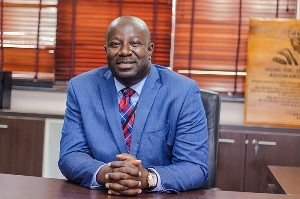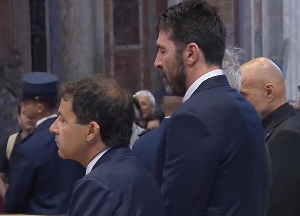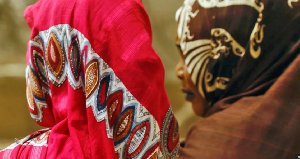The New Patriotic Party (NPP) Member of Parliament for Anyaa Sowutuom, Dr Dickson Adomako Kissi, has posited that the Nana Addo Dankwa Akufo-Addo government implemented some of its policies and programmes without putting measures in place to ensure that the needed funds are available for them.
Speaking in an interview on Metro TV’s Good Morning Ghana programme on January 19, 2024, Dr. Adomako Kissi, indicated that the implementation of policies like the Free Senior High School (SHS) policy and Teacher and Nursing Trainee Allowance, stretched the finances of the government which forced it to introduced taxes like the VAT on electricity on a category of consumers.
He added that even though the government during its first year in office stayed true to its words and cancelled a lot of taxes, the country is at a place where it needs more revenue to implement policies to better the lot of Ghanaians.
“Government runs on taxes and loans. It's as simple as that. And I think that in hindsight, and hear me out, I'm speaking for Ghana. In hindsight, we did away with some taxes and we had bold projects or bold government expenditures.
“And the two were not in synchrony. Because at any point in time when government is taking on major programs, I mean, the likes of Free Senior High School (SHS), the likes of Agenda 111, the likes of the SHSs, the STEM schools that Nana Addo Dankwa Akufo-Addo has built, the big hospitals, including La General, which now I know is ongoing, then the onus is on you to find money for these major projects,” he said.
He added, “So, as it stands now, the truest thing I can say is the fact that government took on many audacious programs or projects without necessarily gathering enough revenue to address those projects. And we are at a point where we've in a way, chewed more than we can swallow”.
The MP urged the public to support the VAT on electricity which he indicated are critical to ensuring that the country enjoys a stable supply of power.
“And without a doubt, we are filling the brunt of it. And there's only one way out to, as it is bring ourselves back up and that is to go back to the revenue generation or mobilization aspect. And I believe that the average Ghanaian will agree with me that we should squeeze a little so that we can have our lights on. It's better than not squeezing at all and having no light.
“And that is a situation we're in. It is painful. I said that this is a difficult topic to broker and I feel the average Ghanaian's situation. But what can I do?... we're amputating Ghanaians' disposable income so that we can sail and arrive at the shore in one bit.”
Background:
The Akufo-Addo government came under intense scrutiny after a letter from the Ministry of Finance showed that the government has been changing Value Added Tax (VAT) on a section of electricity consumers in the country since the beginning of January 2024.
The letter, which was signed by the Minister for Finance, Ken Ofori-Atta, and addressed to the Electricity Company of Ghana (ECG) and the Northern Electricity Distribution Company (NEDCO), indicated that the VAT would be for residential customers of electricity above the maximum consumption level specified for block charges for lifeline units.
It said that VAT forms part of the implementation of the country’s Covid-29 recovery programme and should be charged starting from January 1, 2024.
“As part of the implementation of the Government's Medium-Term Revenue Strategy and the IMF-Supported Post Covid-19 Programme for Economic Growth (PC-PEG), the implementation of VAT for residential customers of electricity above the maximum consumption level specified for block charges for lifeline units in line with Section 35 and 37 and the First Schedule (9) of Value Added Tax (VAT) Act, 2013 (ACT 870) has been scheduled for implementation, effective 1st January 2024.”
“For the avoidance of doubt, VAT is still exempt for "a supply to a dwelling of electricity up to a maximum consumption level specified for block charges for lifeline units" in line with Sections 35 and 37 and the First Schedule (9) of Act 870,” the letter further clarified.
Listen to Dr Adomako Kissi's comments below:
We have bitten more than we can chew - Dr. Adomako Kissi explains why gov't keeps taxing Ghanaians #GoodMorningGhana #MetroTV pic.twitter.com/XebEmiXvME
— . (@metrotvgh) January 19, 2024
BAI/OGB
You can also watch the latest episode of Everyday People on GhanaWeb TV below:













